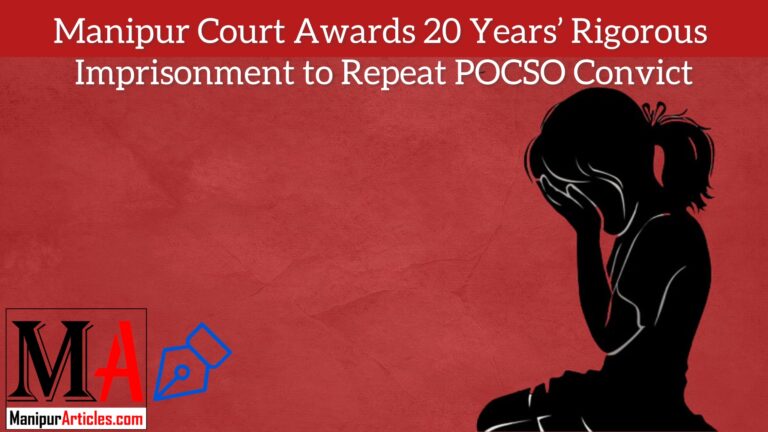Why PM Modi Isn’t Addressing Manipur’s Crisis: Congress’s Tough Questions
Summary of the Situation
Congress MP Alfred Arthur from Manipur, in an emotionally charged speech, questioned Prime Minister Narendra Modi’s lack of direct involvement in addressing the ongoing ethnic violence in Manipur. He highlighted the suffering of displaced families, the economic hardships of the state, and the absence of Union ministers since the crisis began in May 2023. Criticism also extended to Chief Minister N. Biren Singh’s leadership, with calls for his removal. Congress leaders demanded accountability from the central government, citing the lack of a decisive response to restore peace and order in the state.
The Long Story: A Deep Dive into Manipur’s Political and Social Unrest
A State in Turmoil: What Sparked the Crisis?
Manipur has been embroiled in an ethnic conflict since May 2023, predominantly involving clashes between the Meitei and Kuki communities. This unrest has resulted in over 300 deaths, thousands of injuries, and significant displacement of people, with many living in relief camps under harsh conditions. The ongoing violence has created a humanitarian crisis, with abductions, property destruction, and severe disruptions to daily life.
The Congress has been vocal about the “failure” of the BJP-led double-engine government (state and center) to mitigate the situation. The unrest has exposed gaps in governance and raised questions about the efficacy of existing leadership in addressing regional issues.
Congress’s Key Criticisms
- The PM’s Absence
Congress leaders, including Alfred Arthur and Jairam Ramesh, have repeatedly pointed out that PM Modi has not visited Manipur since the violence erupted. They argue that his lack of physical presence shows a disconnect from the state’s struggles. The Congress has compared this to the Prime Minister’s frequent international trips, emphasizing that the crisis demands immediate attention. - Failure to Replace Chief Minister Biren Singh
Opposition leaders have questioned why Chief Minister Biren Singh, whose leadership is seen as controversial, remains in office. They argue that removing him could pave the way for peace. Arthur specifically highlighted that replacing one individual should not be so challenging when the stakes are this high. - Economic and Social Neglect
Arthur criticized the central government for presenting what he called an “anti-people” budget. With Manipur being one of the lowest-income states and facing record inflation, residents struggle with rising costs and diminishing opportunities. He questioned how the government plans to support a state already at its breaking point.
Congress’s Proposed Solutions
- Involvement of All Parties
The Congress has called for an all-party delegation to visit Manipur and engage with local leaders and affected communities. They also proposed an all-party meeting at the national level to develop a cohesive strategy for restoring peace. - A Direct Appeal for Justice
Congress leaders demanded accountability and urged Modi to listen to the voices of those affected, including women and children who remain homeless. They believe his direct engagement could foster trust and demonstrate commitment to resolving the conflict. - Engagement with Neutral Stakeholders
In a previous visit, Congress leader Rahul Gandhi suggested involving the Naga community, which has remained neutral, to mediate between conflicting groups. This approach underscores the importance of leveraging local insights to address deeply rooted ethnic tensions.
Broader Implications of the Crisis
The unrest in Manipur is not just a regional issue; it highlights systemic challenges in India’s governance of its northeastern states. Ethnic divisions, historical grievances, and inadequate administrative responses have turned Manipur into a focal point for discussions on federal accountability and regional autonomy. The Congress’s persistent questioning of the BJP’s actions—or lack thereof—underscores the need for a unified and proactive approach.
The Political Game at Play
The Congress’s criticism aligns with a broader strategy to hold the BJP accountable for what it describes as the central government’s neglect of northeastern states. Manipur’s crisis is seen as emblematic of the BJP’s alleged failure to balance development with sensitivity to regional identities. The Congress’s emphasis on this issue also aims to galvanize support ahead of upcoming elections, positioning itself as a party that prioritizes inclusive governance.
FAQs
- What caused the ethnic conflict in Manipur?
The conflict primarily stems from long-standing tensions between the Meitei and Kuki communities over issues like land rights, reservations, and identity politics. - What role has the central government played in resolving the crisis?
Critics argue that the central government’s response has been slow and insufficient, with PM Modi’s lack of a visit seen as symbolic of this inaction. - Why is Congress focusing on the PM’s involvement?
Congress believes that PM Modi’s direct intervention and engagement with affected communities could expedite peace-building efforts and showcase accountability. - What solutions has Congress proposed?
Congress has called for an all-party delegation to visit Manipur, the removal of CM Biren Singh, and the involvement of neutral stakeholders like the Naga community to mediate the conflict. - How has the crisis affected Manipur’s economy?
The violence has worsened economic conditions, with inflation soaring and livelihoods disrupted. Relief efforts remain inadequate for the displaced population.

